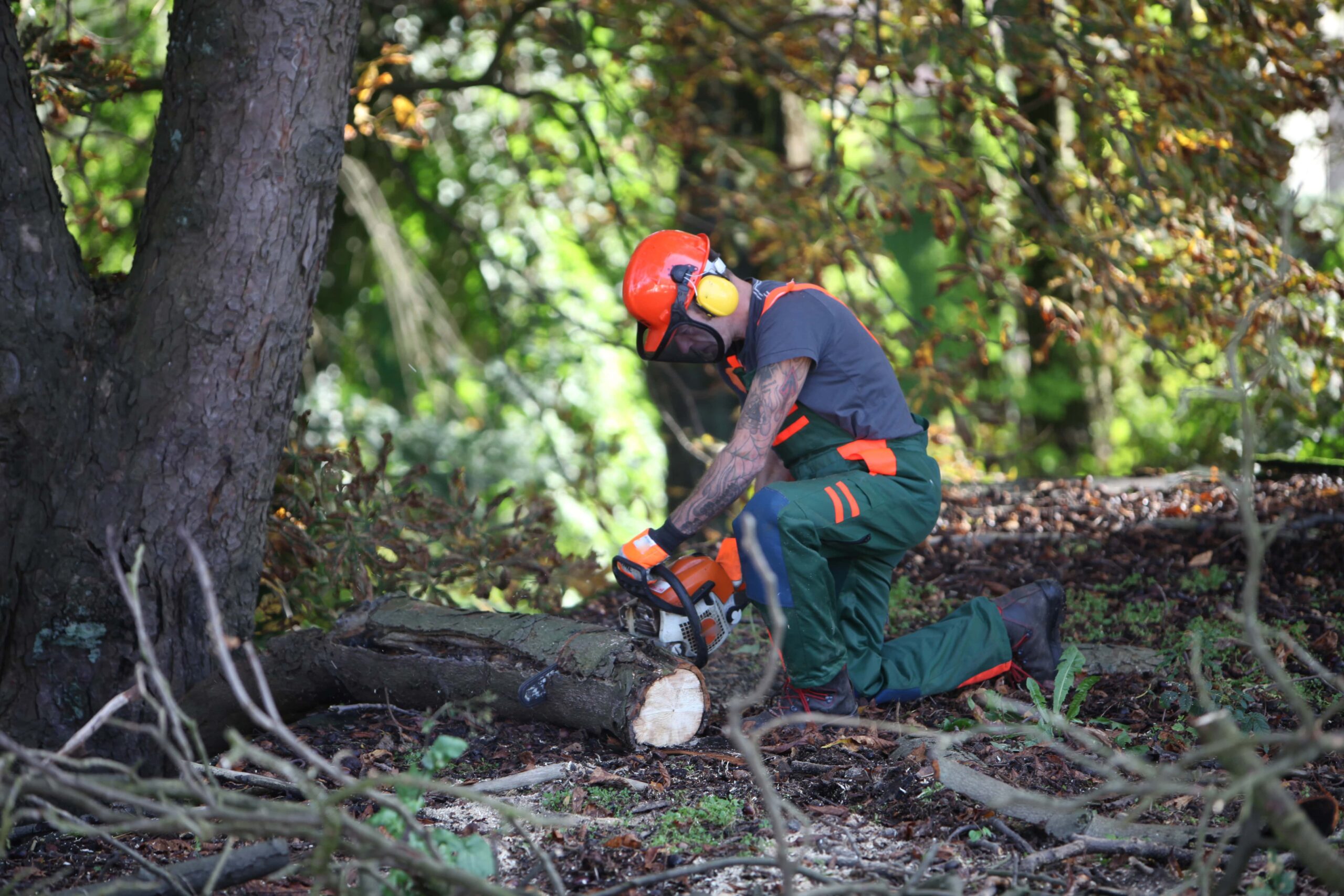Guest post by Evan Torchio
For nature lovers looking for a rewarding career, forestry might be the perfect fit.
Whether you’re a student looking to start a meaningful career or someone searching for more fulfilling work, forestry is an excellent choice. Not only is it good for your mental and physical health, but it’s a profession that is in demand and projected to grow. Here are our top five reasons for why you should pursue a career in forestry.
![A female forestry worker]() #1: Protect forests for future generations
#1: Protect forests for future generations
Scientists have long called for the utilization of trees and forests for mitigating the global threat of climate change. Trees soak up and store carbon dioxide (Co2) as they grow. In the process of converting Co2 (and water and sunlight) into wood, they release oxygen into the air and help soil capture significant amounts of carbon, too.
As of 2020, forests cover 31% of the global land area and account for 80% of the world’s biodiversity. We rely on forests to provide us with clean air to breathe and water to drink, all sorts of fruits, nuts, seeds, and fungi to eat, and raw materials like timber to build furniture, houses, and even skyscrapers. By pursuing a career in forest conservation, you can play an integral role in protecting our planet’s biodiversity and ensuring food security and resources for future generations — what could be more exciting than that?
#2: It’s good for your mental health
Studies show that spending time outdoors, particularly near trees and forests, is good for your health. One of the more well-known benefits of being among trees is a boost in mood. Spending time outdoors “gives the cognitive portion of our brain a break, allowing us to focus better and renew our ability to be patient”.[1] Other common side effects of spending time outdoors are mental clarity, grounding and perspective, and feeling re-energized.
Common areas with trees also help to build stronger neighborhoods. Chicago residents of buildings with more trees and grass reported that they knew their neighbors better, socialized with them more often, had stronger feelings of community and felt safer and better adjusted.[2] Working in a career that not only promotes a healthy planet, but also healthy minds and communities? That’s what we like to call a home run.
#3: Learn a specialized skill
Forestry is an essential service in enhancing, managing, and conserving forests. Forested landscapes face natural disasters, land use conversion and development, and destruction from catastrophic wildfire. Forestry careers require a number of different skills, from tree identification and problem-solving to decision-making and long-range planning. A career in forestry means you’ll gain practical knowledge in soil health, hydrology, ecosystems management, agriculture, wildlife preservation, and the timber supply chain.
Although it’s not as well-known as some of the other science-based fields, like chemistry, engineering, or wildlife biology, having an undergraduate degree in forestry is not only an intellectually challenging pursuit, but it offers a variety of career paths and specializations. Whether you’re interested in becoming a forester (responsible for conservation, rehabilitation, and land management) or perhaps a forest and conservation technician (responsible for conservation and forest propagation, like planting trees or helping combat forest fires), the options are endless.
#4: Work in a growing field
Careers in forestry have been around since the 1800s, and the demand is only growing. Due to the unfortunate effects of climate change, specialized foresters and conservation scientists are needed worldwide to help safeguard one of our most essential natural resources: trees. The forest industry is projected to grow 5% from 2019 to 2029, faster than the average for all occupations, particularly in the area of wildfire management, which includes wildfire prevention, mitigation, and suppression.
When it comes to deciding where to work, the majority of qualified foresters work for a local or state (or provincial) unit of government or for the federal government. Government jobs can earn good salaries, especially at the federal level, where professional foresters earn an average salary of $76,000. If you’re not interested in a government job, there are plenty of environmental advocacy and non-profit organizations that are looking for applicants.
#5: Long-term health benefits
Being able to work outdoors is like an added insurance policy for your health. When you choose a job in forestry, you’ll be spending more time outdoors than the average person, and without even trying you’ll be actively reducing stress hormones like cortisol and adrenaline that can lead to chronic inflammation and a suppressed immune system if not properly regulated.
But that’s not all. Spending time in a forest (urban or rural) reduces a variety of health issues, including respiratory diseases and skin cancer, and helps to promote an active lifestyle which can reduce obesity.[2] And when you breathe in fresh air, you’re breathing in phytoncides (a chemical plant’s release into the air to ward off insects and protect them from disease). Phytoncides have a strong antibacterial effect and can help you fight off disease and boost your immune system.[1]
 There are plenty of great reasons to pursue a career in forestry (far too many to fit in this list). If the idea of working at a desk, staring at a computer screen for 50+ hours a week sounds overwhelming — you’re not alone. The benefits of working outside, exerting your body, and protecting a resource that’s invaluable to our life on earth is an extremely rewarding and honorable career to choose.
There are plenty of great reasons to pursue a career in forestry (far too many to fit in this list). If the idea of working at a desk, staring at a computer screen for 50+ hours a week sounds overwhelming — you’re not alone. The benefits of working outside, exerting your body, and protecting a resource that’s invaluable to our life on earth is an extremely rewarding and honorable career to choose.
We hope we were able to give some insight into this unique and exciting field. We’re extremely passionate about the forestry industry and want to encourage people of all ages and stages of their careers to consider pursuing a career in forestry.
Evan Torchio is a founder of Tree Menders, a Southern Ontario based tree service company that takes great pride in providing quality work and excellent customer service.


 #1: Protect forests for future generations
#1: Protect forests for future generations